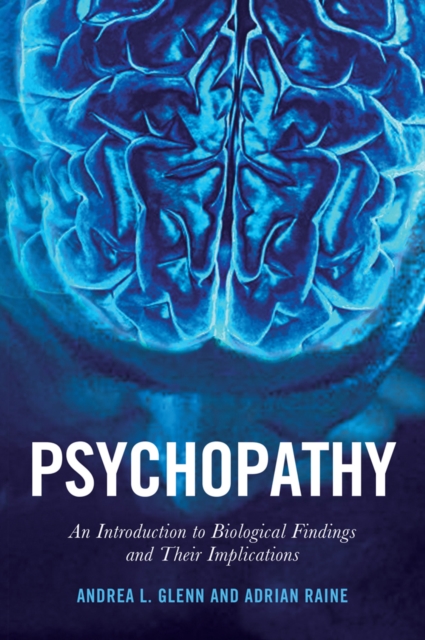
Psychopathy : An Introduction to Biological Findings and Their Implications Paperback / softback
by Adrian Raine, Andrea L. Glenn
Part of the Psychology and Crime series
Paperback / softback
Description
A concise overview of the neuropsychology of psychopathy, written in layman's termsThe last two decades have seen tremendous growth in biological research on psychopathy, a mental disorder distinguished by traits including a lack of empathy or emotional response, egocentricity, impulsivity, and stimulation seeking.
But how does a psychopath’s brain work? What makes a psychopath?Psychopathy provides a concise, non-technical overview of the research in the areas of genetics, hormones, brain imaging, neuropsychology, environmental influences, and more, focusing on explaining what we currently know about the biological foundations for this disorder and offering insights into prediction, intervention, and prevention.
It also offers a nuanced discussion of the ethical and legal implications associated with biological research on psychopathy.
How much of this disorder is biologically based? Should offenders with psychopathic traits be punished for their crimes if we can show that biological factors contribute?
The text clearly assesses the conclusions that can and cannot be drawn from existing biological research, and highlights the pressing considerations this research demands.
Information
-
Only a few left - usually despatched within 24 hours
- Format:Paperback / softback
- Pages:254 pages
- Publisher:New York University Press
- Publication Date:07/03/2014
- Category:
- ISBN:9780814745441
Other Formats
- EPUB from £21.31
- Hardback from £69.45
£25.99
£23.25
Information
-
Only a few left - usually despatched within 24 hours
- Format:Paperback / softback
- Pages:254 pages
- Publisher:New York University Press
- Publication Date:07/03/2014
- Category:
- ISBN:9780814745441










